How to find a therapist
A no-nonsense guide to finding a therapist for yourself or your child
Welcome to Techno Sapiens! Subscribe to join thousands of other readers and get research-backed tips for living and parenting in the digital age.
Summary for Busy Sapiens
Most people can benefit from therapy
There are many kinds of therapists, e.g., psychologists, psychiatrists, counselors, social workers
Psychiatrists prescribe medication. Psychologists do not.
Look for evidence-based treatments like Cognitive Behavioral Therapy (CBT)
Search for a therapist in directories like Psychology Today
There are ways to make therapy more affordable.
Finding a therapist is confusing. It’s even confusing for me, and—quick reminder—I am a therapist. So today, we’re going to break down the process and (hopefully) make it just a little bit easier.
I’ll answer questions like: What’s the difference between a psychologist and a psychiatrist? Where do I find a therapist for my child? What type of therapy should I be getting? What are all those acronyms after my therapist’s name? I’m a janitor at MIT with a genius-level IQ; will a therapist help me confront my past and fulfill my true potential?1
So pull up a chair, have a seat, and let’s talk about the meaning of the dream you had last night. Just kidding.
Let’s go find ourselves some therapists!
Do I need a therapist?
If you’re wondering whether you should see a therapist for yourself or your child…you probably should. Going to therapy doesn’t require a crisis or emergency. It also doesn’t require a specific mental illness diagnosis. Many people benefit from therapy, even if just to have a non-judgmental space to talk and reflect.
Your first session will be what’s called an “intake” appointment, where your therapist will ask you (and/or your child) questions and decide if therapy is a good fit. They are trained to listen and help you feel comfortable. They will not judge you if therapy turned out to be “unnecessary.” If they do, they are both a bad therapist and kind of a mean person, so run (fast) in the other direction.
They’ll probably ask you questions like: What brings you in today? and What are your goals for therapy? To which you might say something like: I’d like to feel less anxious about work or I’m concerned about my child’s behavior or I’m hoping to learn new ways to cope when I’m feeling stressed.
What is a therapist?
A therapist is any professional, licensed by their state, who provides mental health services. This can include diagnosing and treating mental illness, helping patients solve problems and develop coping skills, and sometimes, prescribing medication.
There are lots of different kinds of therapists.2 You can tell what kind of therapist they are based on the letters after their name. And, let me tell you, it’s an absolute alphabet soup out there.
Let’s start with this handy chart, which breaks down the different types of therapists3 and how prevalent they are in the U.S.
Doctoral-Level Providers: Psychologists (PhD or PsyD) and Psychiatrists (MD) have doctoral degrees (i.e., you call them “Dr.”). This means they had many, many (so many) years of training (usually 6-8) and, in certain cases, wonder why they didn’t just drop out of graduate school and write a newsletter full-time instead?4
Master’s Level Providers: The remainder of the therapists on this chart have master’s degrees. This means they had slightly fewer years of training (usually 3-4). The training each of these therapists receives is slightly different, but in practice, the quality of the therapy you get from any of them will depend more on other factors (their approach, their skills and specialty, your relationship with them) than the letters after their name. For reference:
Counselors. There are at least 6 different acronyms that denote someone is a counselor, depending on the state. Because of course there are. The most common are Licensed Professional Counselor (LPC) and Licensed Mental Health Counselor (LMHC)
Social Workers. They have a bit more training in social and systemic factors influencing mental health. Acronyms, again, depend on the state. Most common is Licensed Clinical Social Worker (LCSW).
Marriage and Family Therapists. They, like all of therapists, provide therapy to everyone, not just those who are married or have families. Go figure. Acronym is Licensed Marriage and Family Therapist (LMFT).
What if I need medication?
Of the list above, only psychiatrists (MDs) can prescribe medication. Psychologists cannot. Neither can any of the masters-level therapists. Pediatricians and primary care doctors can, and sometimes do, also prescribe psychiatric medications, but they have considerably less training in this. In addition, Nurse Practitioners with specialized training can prescribe psychiatric medication. These providers go by yet another acronym: PMHNP (i.e., Psychiatric Mental Health Nurse Practitioner).
If you feel confident you or your child needs psychiatric medication, you should go to a psychiatrist or another provider with prescribing capabilities. If you’re not sure, it may be better to start with a non-prescribing provider. They will refer you to someone who can prescribe meds if needed.
So, what kind of therapist should I see?
This comes down to a combination of personal preference and availability. Many people prefer to see a psychologist, versus a masters-level provider, because they’ve simply had more years of training in doing therapy.
On the other hand, as you can see from the chart, there are way more masters-level providers out there than psychologists. This means it will be easier to find one and they will be a bit less expensive. But it also means that there is more variability in their training, skills, and approach, so it can be a bit more unpredictable.
No matter what, evidence suggests that the most important factor in choosing a therapist is the alliance you build with them. You want someone who feels like a good fit to you, someone you connect to and feel comfortable with. You also want someone who has experience treating the issues you’re coming in with, or working with the relevant population (e.g., kids or teens).
One good option is to find a group practice, where a group of providers with various degrees and levels of training practice in a single office. This will make it easier to switch providers if you’d like, and can be useful for coordinating care—i.e., you could see both a counselor (for therapy) and a psychiatrist (for medication).
Are there different kinds of therapy?
Yes, there are. And some of them work better than others. How about them apples?
There is a whole group of therapies called “evidence-based treatments” (or “empirically-supported” treatments), which have strong research evidence showing that they work. Good therapists will know how to do evidence-based therapies, and will apply them flexibly based on your concerns and preferences. The type of treatment that a therapist tends to use is also called their “theoretical orientation” or “approach.”
A good way to find out what types of therapy a provider does is, simply, to ask. You can ask: What types of therapy do you typically do? Or What is your theoretical orientation? Search directories (see below) also allow you to filter results by types of therapy.
Evidence-based therapies. Got it. So…what do I look for?
There are many types of evidence-based therapies. The right one to use will depend on your (or your child’s) symptoms or diagnosis. However, a good rule of thumb is that many evidence-based treatments are “cognitive-behavioral” treatments (CBT).
In general, CBT:
Involve learning about the ways that thoughts, feelings, and behaviors are interrelated, and working to change each of them.
Tend to be shorter-term (anywhere from 8-16 weeks) and focus on goal-setting, problem-solving, and tracking progress toward goals.
Are more “active” treatments—therapists are asking questions, teaching skills, providing handouts, assigning “homework” to do in-between sessions, etc.
Has been shown to be effective for many issues in both adults and teens, including depression and anxiety.
Note: Dialectical Behavioral Therapy (DBT) is an offshoot of CBT that is the only therapy proven to be highly effective for treating teens with suicidal thoughts. It is also useful for teens and adults with difficulties controlling their emotions.
Cognitive behavioral treatments differ from traditional “psychodynamic” or “psychoanalytic” treatments, which are descendant from Freud and which you’ll recognize from nearly any movie with a therapy scene. Psychodynamic treatments focus more on unconscious motivations, past experiences, and developing insight. In general, these treatments have less evidence to support them—especially for kids and teens. This doesn’t necessarily mean that they don’t work; it just means we don’t have the evidence to be sure. This type of therapy would not be my preference (for myself or my kids).
The bottom line: I like CBT and DBT. I think they work well, and the research supports this. I’m also, probably, more concerned about research evidence than the average person (see: every Techno Sapiens post).
My child is struggling with [insert specific mental health concern]. What kind of treatment should I look for?
Go to this website, maintained by the Society of Clinical Child and Adolescent Psychology. Select your child’s concerns or diagnosis. You’ll find all the evidence-based therapies for that particular concern.
For example, here is the list of treatments for adolescent depression. You can see that CBT is ranked “Level One”—it has the most evidence for its efficacy in treating depression in teens. Something called IPT (interpersonal therapy) is also ranked.
I am struggling with [insert specific mental health concern]. What kind of treatment should I look for?
Go to this website, maintained by the Society of Clinical Psychology, which is a similar resource to the above (but for adults). Select your diagnosis or symptoms. You’ll find a list of treatments that have been studied to treat that diagnosis. Click on each one to learn about its efficacy. You’re looking for treatments that have “Strong Research Support.”
Okay, cool. Just one small problem. Where do I actually find a therapist?
Alright. It’s time to go see about a therapist.
First option: Ask other people. It can be as simple as Hey, do you have any recommendations for a therapist? Here are some people you can ask:
Your primary care doctor
Your child’s pediatrician
Your child’s school nurse or counselor
Friends and family. Specifically, if you happen to know someone who is in the mental healthcare field, ask them. They will almost certainly be happy to share what they know. So happy, in fact, that they may be inspired to write a (very long) newsletter post about it.
Second option: Conduct a search. This can be daunting, I know, but let me break it down. Here are the directories I use and the filters I apply:
Psychology Today. Start here. It’s the most comprehensive, which means you’re likely to find someone good, but you’ll also need to filter out people who claim they “realign your tiger energies through hypnosis.” I filter by “Types of Therapy” and, depending on what’s going on, choose CBT and sometimes also DBT. I also filter by “insurance” and sometimes by “issue” (and “age” if I’m looking for a kid or teen). Unfortunately, there’s no option to filter by provider type. Instead, I scan to look for providers with PhDs in Clinical Psychology. Yes, I am biased.
ZenCare. Fewer providers listed, but better interface and you can search by provider type, approach, insurance, etc.
Other directories by non-profit organizations. The downside: some of these websites are reminiscent of the MySpace era. The upside: they’re more selective (i.e., only show providers with certain training). These include: the American Psychological Association (for psychologists), the Association for Behavioral and Cognitive Therapies (for CBT therapists), and the DBT Provider Directory for (for DBT therapists)
Other directories by start-ups. I do not have experience with these, but have heard good things. Very easy to navigate, though might not be available in every state: Alma and Headway.
Google. (I assume there’s no need for a hyperlink here). I often Google something like “CBT therapist” and the location I’m looking in. This can be a good way to identify larger group practices with multiple providers
I’ve heard therapy is expensive. How do I keep the cost down?
Here are some ways to make therapy more affordable:
Look for a provider that takes your insurance. You can do this by filtering in the directories, calling your insurance company (horrifying, I know) to ask for a list of providers, or using the directory on your insurance company website. Once you find a provider, confirm how many sessions are covered and what your co-pay will be.
The reality is that many providers do not take insurance. The reason for this is not, in fact, that therapists are bad people, but rather that insurance companies have made it an absolute nightmare. But this is a topic for another time. For now, if you’d like to see a provider who is out-of-network with your insurance, call your insurance company to find out how much they’ll reimburse you.
You can also ask an out-of-network therapist whether they offer a sliding scale fee structure (i.e., the amount you pay is based on what you’re able to afford). Many therapists do this.
Another option: colleges and universities with psychology training programs often have in-house mental health clinics, in which therapists-in-training offer low-cost services. The graduate students who are providing services in these clinics receive supervision from a licensed psychologist, and generally, the quality of care (in my experience) is high. Here’s a list of psychology program training clinics.
Alright, I found some therapists. Now what?
Make a few calls. It can be a good idea to pick a list of about 5 providers and call each of them. You can say something as simple as: Hi, this is Will Hunting. I found your information online [I was referred to you by Professor Lambeau], and I’m wondering if you are accepting new patients. You can also ask about logistics. Where are you located? How long will our first session be? How much will it cost? Do you accept insurance (or offer sliding scale fees)?
During your first session, your therapist will ask you (or your child) a number of questions about how you’ve been feeling, your goals for therapy, and any symptoms you’ve been experiencing. It’s also a good time for you to ask them more detailed questions. What kind of therapy do you think will be useful for me? How many sessions do you expect will be needed? What experience do you have working with kids of my child’s age? How will we monitor progress?
Remember, it’s very much okay to switch therapists. Some will be a better fit for you than others. If it’s been a month or two and you’re not seeing any progress, that may also be a sign to try someone new.
Til next time, techno sapiens.
This is not, in fact, a common question about therapy, but is the plot of the 1997 film Good Will Hunting. Incidentally, its depiction of therapy is not particularly accurate. Great movie, though.
The landscape of mental health providers is so confusing that my closest friends and family members still have no idea what degree or title I hold. I don’t blame them. (For those now panicking I’m going to ask you next time I see you: PhD. Clinical Psychologist).
Quick note on “coaching.” This is not the same as therapy. Coaching is increasingly popular, and many people find it to be extremely helpful. In some cases, coaches can provide similar services to therapists (e.g., helping you achieve your goals, working through challenging situations), while avoiding any stigma associated with therapy. However, unlike for therapists, there is no licensing process for coaches. This means that literally anyone—me, you, my 9-month-old baby—could advertise themselves as a “coach.”
I’d like to lay out for all of you how difficult it is to get a PhD in Clinical Psychology—partly because it’s interesting, but mostly because I hope it will be a healing experience for me. You start by trying to get into a program. The most recent statistics suggest that the acceptance rate is 5%. This means most applicants spend at least two years working low-paying research assistant jobs to boost their resumes—and many apply two or three years in a row before securing a spot.
Then you’re in grad school. Imagine everything you do when getting a normal PhD (writing a dissertation, taking exams, doing research, teaching undergraduates). Now, add in a minimum of 500 hours of providing (free) therapy services. After this, you have a one-year clinical internship, involving a “match” similar to the medical school residency process and moving to a new city. Then one to two years of “postdoctoral training” (often, also in a new city) with an additional 1000+ hours required by most states for licensure.
So, after at least eight years, multiple cross-country moves, and countless hours crying into your laptop over lackluster North Carolina bagels, you’re ready to be a psychologist! And also ready for a very long nap.
A quick survey
What did you think of this week’s Techno Sapiens? Your feedback helps me make this better. Thanks!
The Best | Great | Good | Meh | The Worst



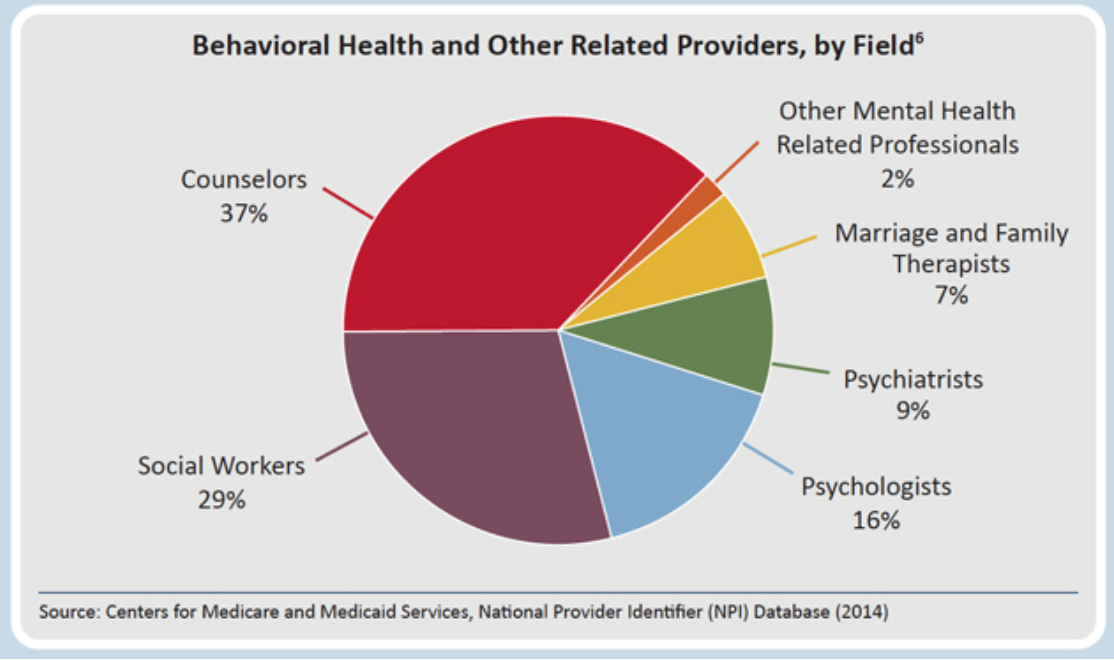
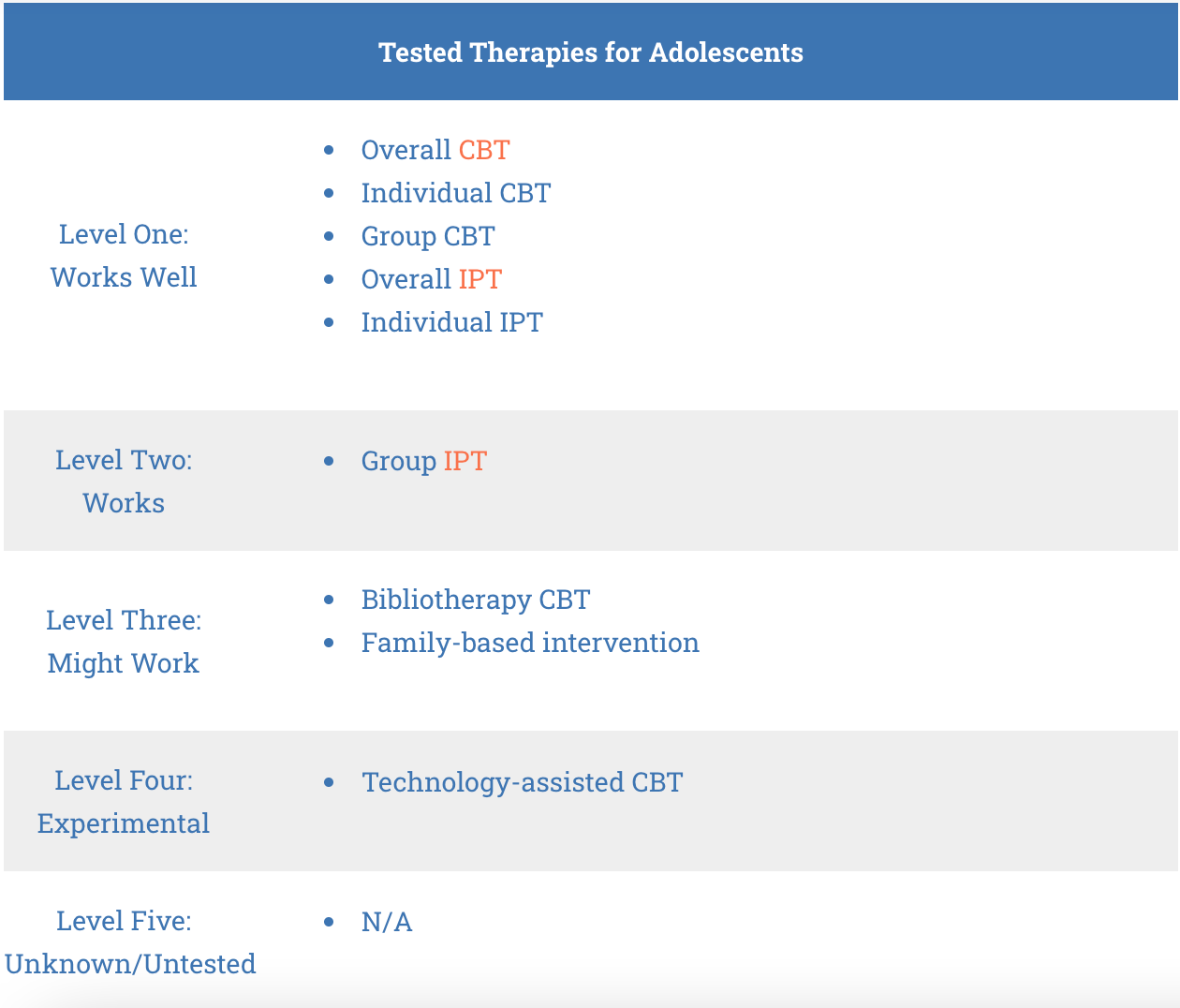
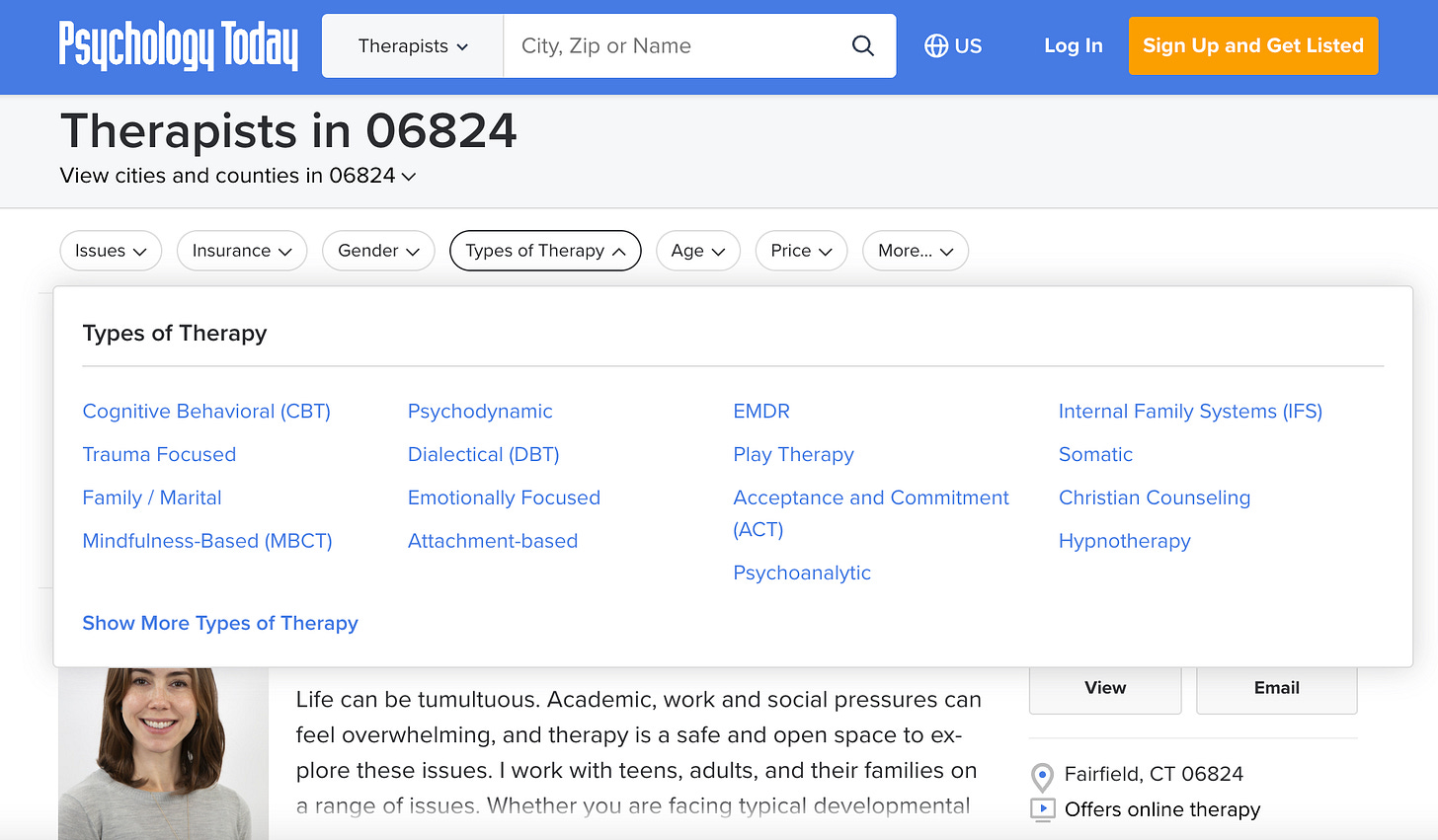
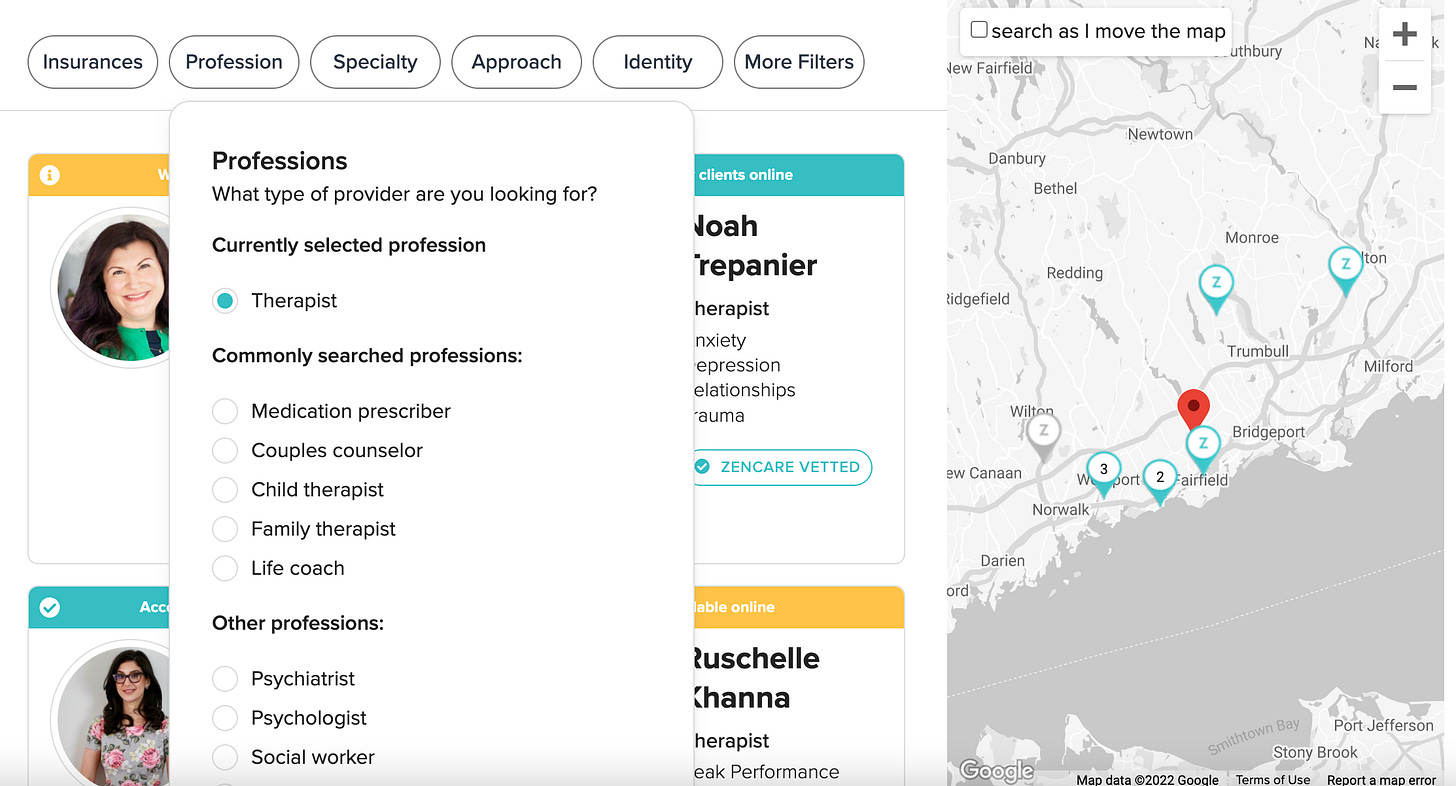
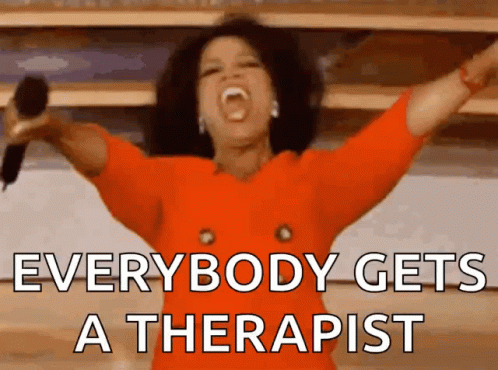
Thanks to fellow techno sapiens for the additional recommended resources!
-https://www.postpartum.net/
-https://therapyforblackgirls.com/
This is super informative because sometimes it’s confusing to navigate the different credentials and licensing!